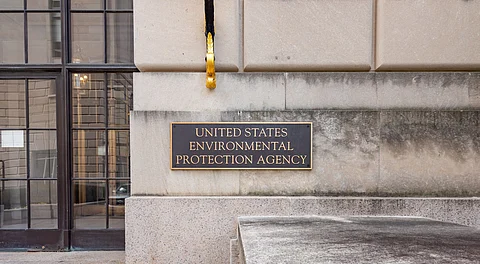

The US Environmental Protection Agency (EPA) introduced new risk management rules for trichloroethylene (TCE) and perchloroethylene (PCE) on December 9, 2024, under the 2016 Toxic Substances Control Act (TSCA).
The agency called the rules a major milestone for chemical safety after decades of inadequate protections and serious delays.
The final EPA rules banned all uses of TCE, all consumer and many commercial uses of PCE. The rules require worker protections for all remaining uses under the TSCA.
The rules mark a major milestone for chemical safety and align with President Joe Biden’s Cancer Moonshot to mobilise a national effort to end cancer.
TCE and PCE, also called tetrachloroethylene, are widely used as industrial solvents and linked to severe health issues like kidney cancer, Non-Hodgkin lymphoma, cardiac defects and bladder cancer.
It’s simply unacceptable to continue to allow cancer-causing chemicals to be used for things like glue, dry cleaning or stain removers when safer alternatives exist, said Michal Ilana Freedhoff, Assistant Administrator for the Office of Chemical Safety and Pollution Prevention. “These rules are grounded in the best-available science that demonstrates the harmful impacts of PCE and TCE,” added Freedhoff.
EPA released a final revised risk determination for trichloroethylene (TCE) as a whole chemical substance in January 2023.
The federal agency said 52 of 54 conditions of use evaluated contributed to the determination that TCE presents an unreasonable risk of injury to human health under its conditions of use.
The American Chemistry Council (ACC) released a statement on October 23 last year, in response to EPA’s proposal to ban the use of TCE.
“TCE has several important uses in packaging and formulation, and as a solvent, where small amounts are used. If EPA decides to move forward with restrictions on consumer uses of TCE, it is important that it does not unnecessarily restrict valuable industrial uses,” the statement said.
A lawsuit was filed against EnPro Industries and multiple other corporate entities in June this year for illegally discharging TCE into the environment, contaminating soil, air and groundwater and exposing workers to the cancer-causing chemical.
The people and environment of Water Valley, Mississippi, were poisoned with TCE for more than 50 years by an auto parts company previously owned and operated by EnPro Industries, according to a statement by law firm Trial Lawyers for Justice. The illegal dumping is alleged to have caused a ‘cancer cluster’, with higher rates of cancer in the county than in nearby surrounding areas.
Senator Edward Markey of Massachusetts welcomed the move. He talked about the contribution made by Anne Anderson from Woburn, Massachusetts, who approached him and started a movement to keep any more children like Jimmy Anderson, her son, from dying due to cancer caused by toxic chemicals.
“Anne’s work directly led to this announcement from the Environmental Protection Agency that I am overjoyed to celebrate today alongside her and every community that stands to benefit—a finalized ban on trichloroethylene and most uses of perchloroethylene, two chemicals that cause cancer, affect reproductive systems, are neurotoxic, and compromise immune systems,” said the Senator.
In 1972, Anne Anderson’s 3-year-old son Jimmy was diagnosed with leukemia—and other children who lived nearby were suffering from the ailment, too. She was convinced the spate of disease had something to do with Woburn’s reddish, foul-smelling water, which people had complained about for years.
Her efforts set in motion a long and tortuous chain of events: city, state, and federal investigations; a Harvard School of Public Health study; and a court case. In 1979, the state shut down two of Woburn’s municipal wells after discovering they were contaminated with industrial solvents.